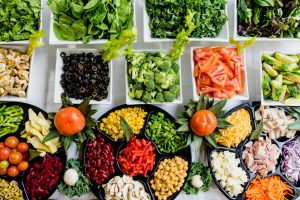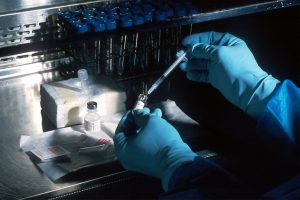AI-Driven Farming: Optimizing Crop Yields with Machine Learning
Farming is one of the oldest professions, dating back to the dawn of civilization. Over the years, it has evolved tremendously, especially with the introduction of new technologies. One of the most exciting advancements in modern farming is the integration of artificial intelligence (AI) and machine learning. With the help of AI, farmers can optimize their crop yields, leading to increased efficiency, reduced risks, and better harvests. In this article, we will explore how AI-driven farming is revolutionizing agriculture and how it can help in optimizing crop yields.
The Role of AI in Agriculture
AI is a branch of computer science that deals with creating intelligent machines that can perform human-like tasks. In agriculture, AI is used to analyze and interpret data collected from various sources, such as soil samples, weather forecasts, and historical crop data.
The advanced algorithms used in AI can learn from these data and identify patterns, making predictions and providing insights that help farmers make informed decisions. This technology has been a game-changer in the agricultural sector, with AI-powered solutions providing efficient, accurate, and cost-effective ways to optimize crop production.
Optimizing Crop Yields with Machine Learning
Soil Analysis
One of the key factors that determine crop yields is the soil quality. AI-driven farming utilizes machine learning algorithms to analyze soil samples, identifying any deficiencies and suggesting ways to improve soil health. This information is crucial in determining the best crops to plant and the appropriate time to do so.
Weather Forecasting
Weather can have a significant impact on crop yields. AI-powered weather forecasting solutions use historical data and real-time weather data to predict weather patterns accurately. This information is invaluable to farmers as it helps them plan their planting and harvesting schedules, reducing the risk of crop damage due to extreme weather conditions.
Predictive Maintenance
Farm equipment plays a vital role in agriculture, and any breakdown can lead to significant losses. With AI-driven predictive maintenance, farmers can monitor their equipment’s performance and detect any potential issues before they escalate. This proactive approach helps reduce downtime and minimize repair costs, ultimately optimizing crop yields.
Pest and Disease Management
Pests and diseases are a constant threat to crop production. With the help of machine learning, AI-powered systems can analyze data from various sources to identify and predict potential pest and disease outbreaks. This enables farmers to take preventive measures early on, reducing crop losses and increasing yields.
The Benefits of AI-Driven Farming
Increased Efficiency
AI-powered solutions automate various tasks, such as soil analysis, weather forecasting, and pest management, saving farmers time and effort. This leads to increased efficiency as farmers can focus on other essential tasks, resulting in better crop yields.
Reduced Risks
AI-driven farming can help reduce risks associated with crop production, such as weather-related crop damage, pest outbreaks, and equipment breakdowns. With accurate predictions and insights, farmers can make informed decisions that minimize these risks and ultimately optimize yields.
Better Quality and Quantity of Crops
By utilizing AI technology, farmers can optimize their crop production, resulting in better quality and quantity of crops. With AI suggesting the most suitable crops to plant and the optimal time to do so, farmers can maximize their harvests and meet market demands.
Environmental Sustainability
AI-driven farming promotes sustainable agriculture by reducing the use of resources and minimizing environmental impact. By optimizing crop yields, farmers can produce more with less, leading to more sustainable farming practices.
In Conclusion
In the face of climate change and the growing global population, the need for increased food production has never been more crucial. With the help of AI-driven farming, farmers can optimize their crop yields, making agriculture more efficient, sustainable, and profitable. As technology continues to evolve, we can expect even more significant advancements in AI-driven farming, further revolutionizing the agricultural sector.







